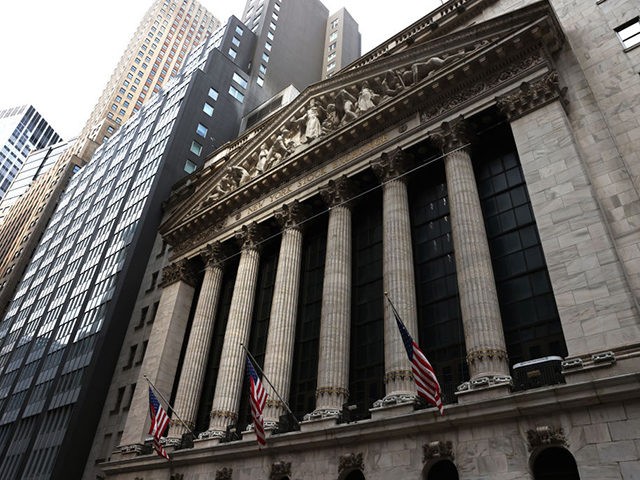A surprisingly hot inflation report knocked back the confidence of investors on Wednesday, sending stocks tumbling in the biggest sell-off in several months.
The Dow Jones Industrial Average fell 681 points, nearly 2 percent, with the downward pressure mounting in the final hour of trading. The S&P 500 dropped 2.14 percent, the worst day since October. The Nasdaq Composite fell by 2.67 percent. The small-cap Russell 2000 dropped by 3.26 percent.
Labor Department’s release Wednesday morning of the Consumer Price Index for April was the clear catalyst for the sell-off. The headline index jumped 4.2 percent from a year before, the most in any 12-month period since 2008. On a monthly basis, inflation rose 0.8 percent. The monthly gain in core inflation, which excludes food and energy, was at its highest since 1981.
Tech giants, which had soared during the past year of lockdowns, took some of the biggest losses. Amazon shares fell 2.2 percent. Netflix shares dropped 2 percent. Apple shares dropped 2.5 percent. Microsoft shares plummeted 2.9 percent. Google shares were down by just over 3 percent. Facebook shares fell by 1.3 percent.
Bond yields snapped higher. The yield on the 10-year Treasury note rose to 1.69 percent from 1.62 percent a day earlier, a big move. Bond yields rise when investors fear that an increase in inflation will erode the future value of the income that bonds pay.
Ten of the 11 sectors of the S&P were down for the day, with the Energy sector holding onto unchanged territory. The Consumer Discretionary sector was the worst performing, followed by Information Technology.
Inflation concerns have been hitting the stock market hard this week. The S&P 500, Nasdaq and Dow are on track for their biggest weekly loss since Oct. 30. The Dow and S&P 500 had set all-time highs just last Friday.
Investors have been worrying that inflation could return after being absent for many years as the economy revs out of the recession brought on by the pandemic and deficit spending hits record highs. Federal Reserve officials say they expect inflation to be transitory but Wednesday’s data may have led some investors to doubt the Fed’s ability to predict the strength of inflation.
The high inflation numbers may also make it harder for President Joe Biden to garner enough support to pass his two big spending bills.
–The Associated Press contributed to this report.

COMMENTS
Please let us know if you're having issues with commenting.